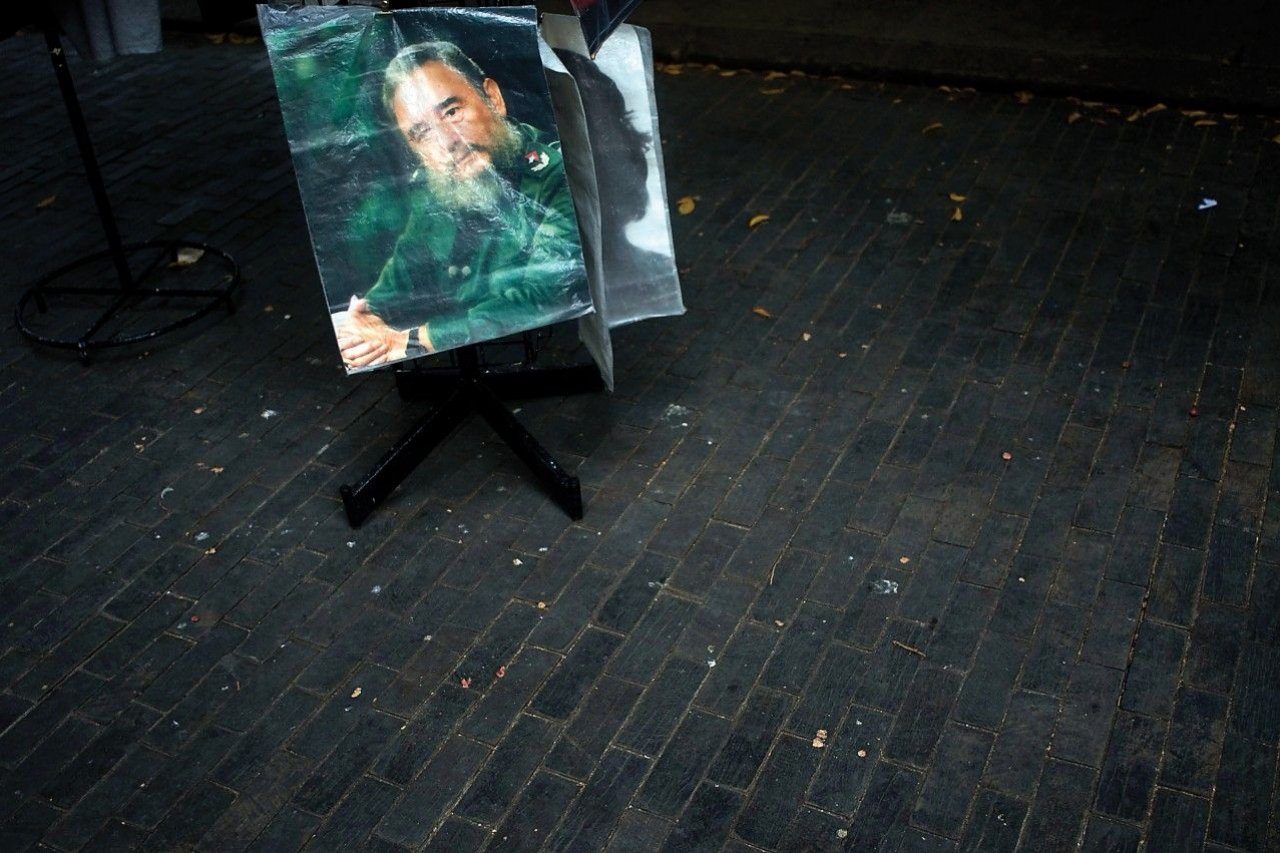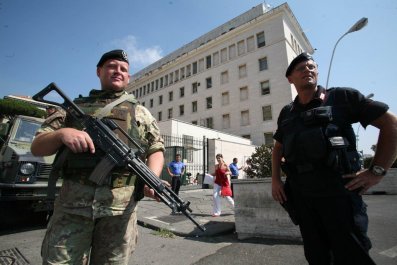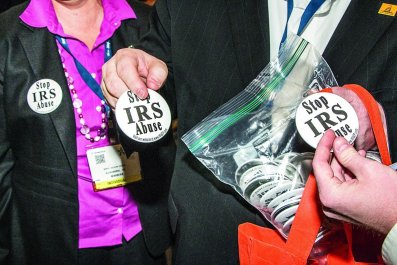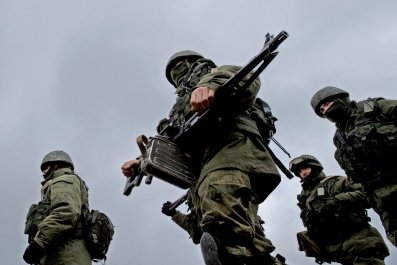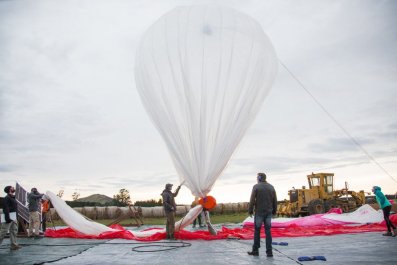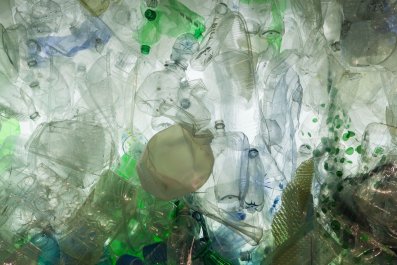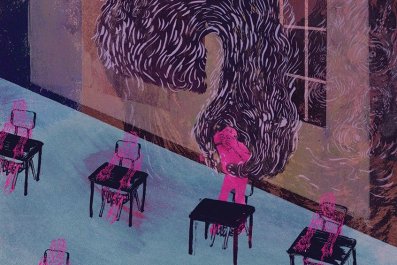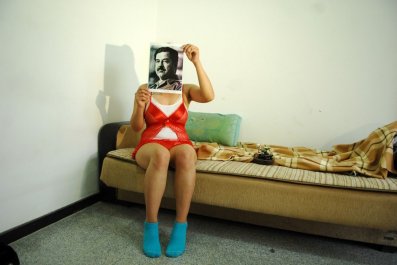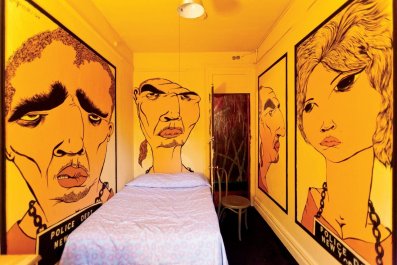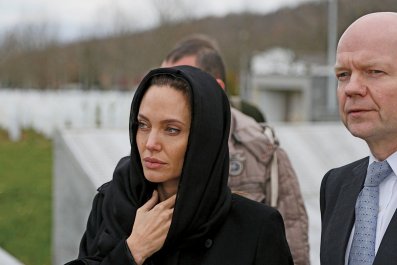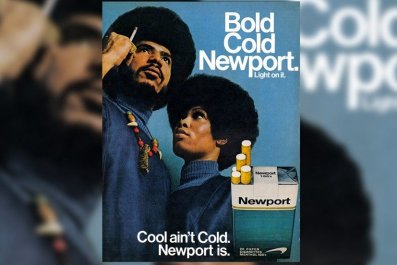It's an unlikely tale of three cities that begins in Damascus, winds through Washington, D.C., and ends tragically in a Havana jail. Its key characters seem drawn from a Cold War espionage thriller, amateurish spies stuck in yet another feckless plot to overthrow the Cuban regime.
In late November 2010, a Washington, D.C., businessman named Akram Elias traveled to Damascus with a discreet proposal to burnish the image of the Syrian regime in Washington. "It was great seeing you earlier this morning," Elias, a Lebanese American, wrote to Bouthaina Shabaan, the longtime mouthpiece for President Bashar al-Assad, in an email obtained by WikiLeaks. Only six months earlier, the Obama administration had slapped Syria with sanctions for its support of terrorist groups and for seeking to develop weapons of mass destruction.
Elias gave the Syrians a one-page "communications strategy" right out of the standard lobbyist playbook for clients with severe image problems in official Washington. The idea, of course, was to soften the image of the regime in Washington, perhaps even persuade officials to lift sanctions. Price tag: $22,000 a month, plus expenses—all standard for a PR campaign for a thuggish regime.
What was odd about this one, however, was that while Elias was courting Damascus, he had, according to his Capital Communications Group website, public relations contracts with 18 national security agencies in the Obama administration, including the Justice Department, the State Department, the Drug Enforcement Administration and the Department of Homeland Security. But he was also a key player in a long-running campaign by the U.S. Agency for International Development (USAID) to undermine another totalitarian regime—in Cuba.
Why Elias? Why Cuba? Because, in yet another odd twist, Elias was a high official in the Freemasons, the centuries-old, secretive Protestant organization with a long history in Cuba, when right-wing ideologues in the USAID decided to take another run at overthrowing the Communist regime.
The Masons are descended from the medieval guilds that built Europe's cathedrals, and their presence in Cuba dates back to 1763, with the arrival of English and Irish settlers. At the turn of the century, their numbers were bolstered by the arrival of French planters fleeing the Haitian Revolution. A century later, they could count Cuban revolutionaries like José Martí among their brethren. And in the 1950s, according to lore, yet another revolutionary, Fidel Castro, developed a soft spot for the Masons when they gave him refuge in a Masonic Lodge.
The Freemasons survived Castro's revolution, but he kept them on a tight leash. Still, membership was stable, and with Castro's gradual retreat from power after 2001, the Masons began to flourish. Today they claim nearly 30,000 members in Cuba.
Elias emigrated from Lebanon to the United States as a teenager in the 1970s. In 1996, according to Freemason publications, he embraced the brotherhood and quickly rose to the leadership of its District of Columbia lodge. In 2002, he made a grand tour of Cuba, the first of several trips as the regime loosened economic and political controls.
The USAID must have seen an opening. Ever since it was invented by the Kennedy administration as a humanitarian relief agency in 1961, USAID's famous clasped-hands logo has always had a bare-knuckles component, with a mandate to help people "striving to live in a free and democratic country." During the Vietnam War, its counterinsurgency projects were so intertwined with the CIA's that they became synonymous.
And so it is now with Cuba. During the George W. Bush administration, Cuban "democracy" programs backed by the USAID grew from $3.5 million to $45 million. Even though Congress slashed their budgets by more than half when Barack Obama took office and scattered them to other agencies, citing "mismanagement," $60 million to $70 million remained in the pipeline, according to The Miami Herald.
In December 2009, Akram Elias was in Havana for a meeting with Alan Gross, a 63-year-old USAID subcontractor from Maryland. Gross was arrested on the night of December 3, 2009, after supplying advanced Internet communications equipment to Cuba's tiny Jewish community. He is now serving a 15-year sentence for subversion in Cuba.
According to a document presented by Cuban authorities during his 2011 sentencing, Gross got a call in Washington in November 2009 from Elias, "a former Grand Officer of the Washington Masonic Lodge who is noted for his distinct opposition to the Cuban political system." Elias expressed interest in the "Cuba democracy program" Gross was running for DAI Inc., a USAID contractor based in Chevy Chase, Md. They agreed to meet for coffee the next day.
"In this meeting," according to the Cuban court's sentencing document, "Elias said that he had thought of installing defendant's system in Cuban Masonic lodges and they decided to meet in Havana in December that year to talk further." And so they did, at the Hotel Nacional de Cuba, on Dec. 2. They "picked up where they had left in Washington with a view to extending the former's Project to Cuban Masonic lodges." Things went so well they agreed to meet again the following day, "but this meeting never took place," according to the Cubans, "because in the evening of December 3 defendant ALAN PHILLIP GROSS was arrested. " He was "found in possession of two flash drives—one a 'Micro Center' and the other a 'Kingston'—with most of the documents related to defendant's projects against the Cuban State."
Cuba's counterspies weren't just lucky in this case, the court document would show. They had been onto Gross and the Masons for years. Gross had delivered "a number of items, including a video camera," to José Manuel Collera Vento, the island's top Mason, back in 2004, prosecutors said. The Cubans said the camera came from Marc Wachtenheim, who worked for another USAID contractor, the Pan American Development Foundation, a block from the Bush White House. Indeed, Cuban counterspies seemed to know everything the Americans had been doing.
At least one reason why became apparent on April Fools' Day, 2011, when it was revealed that José Manuel Collera Vento, grand master of the Grand Lodge of Cuba's Freemasons, was a double agent. "For his subversive actions, on April 1st, 2011, Collera received the highest distinction of the Popular Assembly of Cuba: the Escudo Pinareño," the Masonic Times sadly announced the following day, adding that he "appears today to be just a puppet of a totalitarian regime."
A year before Gross's arrest, experts on the regime say, Cubans already had Internet access and email to the outside world, although the connections were slow. And a year after his arrest, the USAID risked even those fragile freedoms by clandestinely launching a supposedly independent Cuban Twitter-style network, called ZunZuneo, via a web of front companies and foreign servers—a covert action program in everything but name.
Who were they kidding? Not Cuban counterspies, who have been cracking CIA plots like walnuts for decades.
And not Senator Patrick Leahy, D-Vt., chairman of the panel overseeing the USAID, who called the ZunZuneo caper "dumb, dumb, dumb" when The Associated Press broke it last week.
And maybe "dumb" wasn't such a bad thing, given the agenda of the planners behind these laughable schemes. "It's not about being effective," explains Fulton Armstrong, a top former Latin America expert at the CIA and White House National Security Council. "They know that they're not going to overthrow the regime. They know that their assets on the island are mostly opportunists...and that the Cuban government has demonstrated that many 'opposition' recipients of our aid are actually its agents."
The U.S. diplomatic mission in Cuba knew Collera was a double agent long before Elias met with him, according to cables obtained by WikiLeaks. Apparently, they never told the USAID. (Elias did not respond to emails and telephone calls asking for comment, and a USAID spokesperson says of him, "We currently have no record of this individual being a contractor being a contractor for USAID.")
"But the programs' sponsors also know," Armstrong tells Newsweek, "that locking policy into regime-change mode, getting feckless clandestine operators and members of the 'opposition' in jail, and in general trying to provoke the Cuban government keeps the powerful Cuban-American politicians in Washington on their side."
Leahy said the USAID had "absolutely not" told him about its clandestine Cuban Twitter app, even though he's chairman of the Senate panel that writes the agency's budget. "If I had been," he told MSNBC, "I would have said, 'What in heaven's name are you thinking?'"
On Tuesday Leahy will get to ask just that of Rajiv Shah, the USAID's administrator, at a hearing of his Appropriations Subcommittee on State, Foreign Operations, and Related Programs. As chairman, Leahy can ask anything he wants, for as long as he wants. He might think to ask somebody why Akram Elias is still working with the State Department. Word is, he's angling to launch a pilot program for international university students, through a State Department contractor.
Newsweek contributing editor Jeff Stein writes SpyTalk from Washington.



